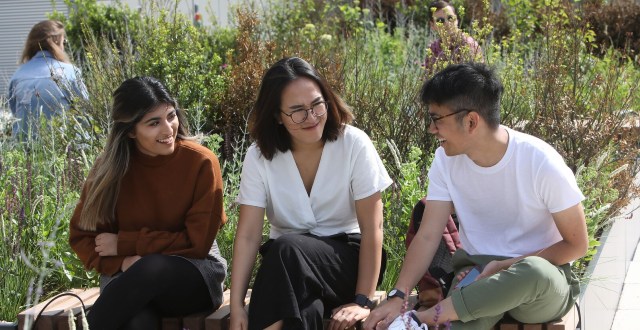 It goes without saying that through academic and non-academic experiences, you can use these to navigate the vast plethora of academic options you can choose from, and identify a niche that suits your specific needs and desires.
It goes without saying that through academic and non-academic experiences, you can use these to navigate the vast plethora of academic options you can choose from, and identify a niche that suits your specific needs and desires.
I have had the good fortune of exploring a wide variety of extracurriculars, domains and sectors, finding my groove (so to speak) in a sector close to my heart, and building enough work experience to be able to identify a nook of my choosing, however vague that may be.
Then came the, well, weary task of choosing a course that suited my experience and future course of action. *Cue montage of me working in different locations, hunched over a computer, eyes darting from one corner of the screen to another*. Cut to one year later, I had applied to the MSc Social Innovation and Entrepreneurship course at LSE, a course that seemed to connect quite deeply with my work and my goals for the long term.
From one indecisive, yet fastidious individual to the larger community, finding a course (or combination thereof) that suits your specific ideals is no walk in the park. So here’s part 1 of my guide and tips to help you.
Fair warning: take this, and for that matter all “guides”, with a pinch of salt as I’m writing from my experiences and perspective as a Master’s student. But they can be applicable to students who want to pursue their undergraduate degree as well, arguably even more so for them. And look at this as a list of things that could be worth trying. These are by no means sequential and so simultaneously trying a combination of them might work wonders. Also, what worked for me might make no sense in your context, so use your discretion and get creative!
1) Search for keywords
Look up keywords if the course you would like to pursue is not your “conventional” combination. Looking into the kinds of courses you might find in the sector you would like to work in, helps immensely.
In my case, all I knew about my long-term ambition was condensed into the following line that I used to describe my interest to anyone and everyone who would lend an ear: “ to create sustainable impact in communities in need, through strategic, human-centred design and innovation”. What this meant in the larger market was practically anyone’s guess. So making this statement operational was quite a challenge. As an engineering graduate, I knew that all I had to do to find the course was google “Best Engineering courses” and I would receive hundreds of hits, “Engineering” being the keyword to use on Google. But what would I search for given my statement? Finding this keyword was quite the struggle. Finding courses in the “development sector” helped me by giving me a list of such keywords I could lookup. This included keywords like “Social Innovation, Social Entrepreneurship, Social Impact, Innovation, Service Design” etc. preceded by “courses on”.
Kudos to you if you already know the kind of keywords that lead to courses of your choosing! Full steam ahead!
2) Speak with academics
Reach out to academics. Period. In the field of your work, outside of it, any field whatsoever. Odds are, you will find excellent people who would be happy to help. If they are not experts in the field of your choice, they might just put you in touch with their contacts in the field. Or contacts of contacts in the field. You get the drift!
I was truly blessed with supportive, academically sound family and friends. Connecting with my dad’s colleagues pursuing PhDs, and talking with my friends doing their Master’s really shifted the game. Now, not only did I receive access to intel on excellent courses around the world, but I also received ideas on how I can expand my field of search. And you can too (even without previous connections).
Talking with academics helped me see other keywords I can try out, universities I can look at, people I can reach out to, etc. This helped me expand my scope of search and come across avenues I would otherwise not have stumbled across.








Hi Sankirtana
This is Syam uncle. Very interesting to read your post
Hello, Uncle! Thank you very much for your kind words!
Nice blog Sankirtana, congratulations!
Thank you very much! 🙂
Never thought about finding the right keywords! Thanks for this sanku 😀
Thank you so much, Rameez!